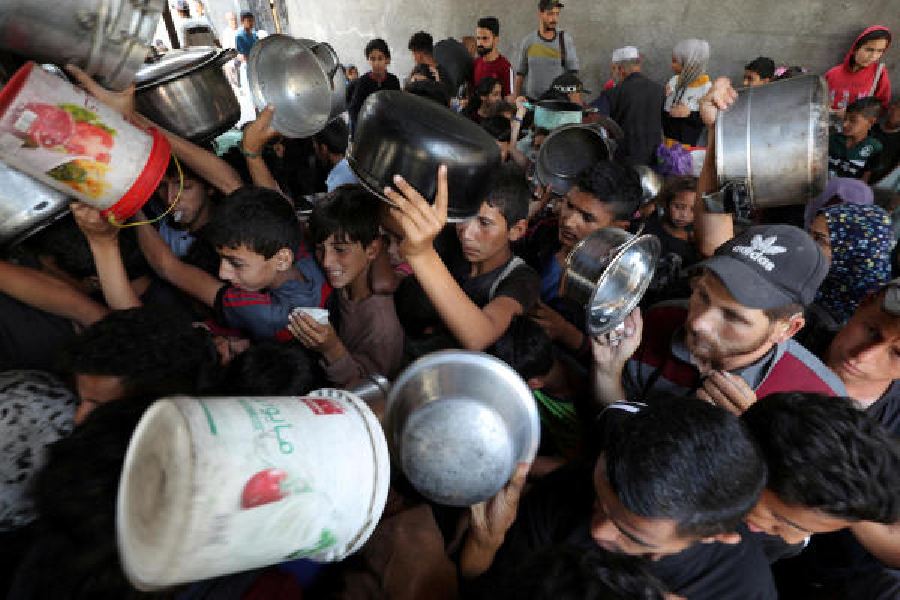Three days after Israel announced that it would ease its blockade of humanitarian aid to Gaza, it appeared on Wednesday that little, if any, of the desperately needed food, fuel and medicine had actually reached hungry Palestinians.
Dozens of trucks ferrying supplies have crossed into Gaza at the Israeli-controlled border crossing of Kerem Shalom, according to Israel. But the UN has so far been unable to move any trucks from Kerem Shalom to warehouses inside Gaza, in part because of fears of looting, according to a UN official, who requested anonymity to share sensitive details.
Palestinians reeling from Israel’s two-month ban on food, fuel and other supplies have been left waiting. The delays suggested that distributing aid across Gaza was likely to take time, even as Israel threatens a major ground offensive that could upend the process.
“Today we will mostly eat lentils, or pasta,” Riyadh al-Housari, a 25-year-old in Gaza City, said in a phone interview. “We eat one meal in the late afternoon. It is one meal and there is no other.”
Israel’s blockade has rendered the situation so dire that Gazans are at “critical risk of famine”, a panel of UN-backed experts said in May. They projected that tens of thousands of children could suffer from acute malnutrition if the restrictions continued. Israel argued the report was based on faulty data and assumptions.
In early March, Israel announced it was barring humanitarian aid from entering Gaza. Israeli officials argued that the restrictions aimed to pressure Hamas to agree to terms for ending the war and freeing the remaining hostages held in Gaza.
The impact on ordinary Gazans was immense: Aid organisations suspended their operations as food stockpiles dwindled, and the price of food skyrocketed. By May, relief officials were warning that widespread hunger had become a daily reality.
For weeks, Israel refused to allow aid agencies to resume operations unless they agreed to new Israeli conditions, purportedly to prevent supplies from falling into Hamas’s hands. Israeli leaders publicly insisted that Gaza still had plentiful stockpiles of food.
Even the US — one of Israel’s most stalwart supporters — began suggesting that the humanitarian crisis was spiralling out of control. Last week, President Donald Trump said that “a lot of people are starving” in the Gaza Strip.











